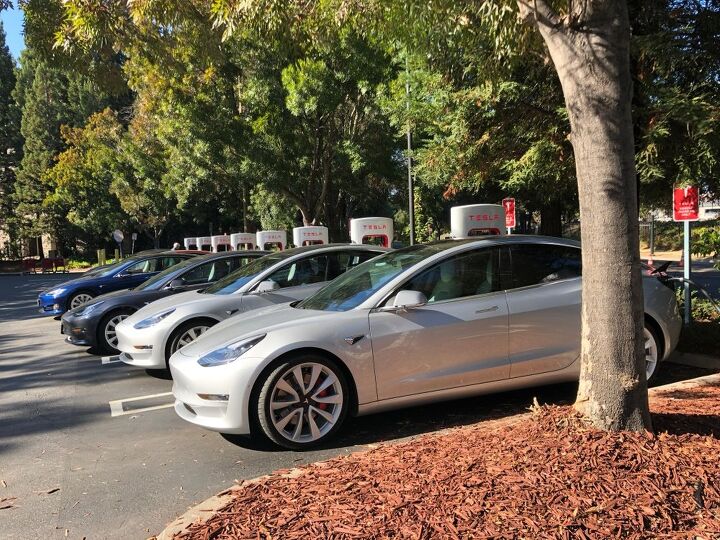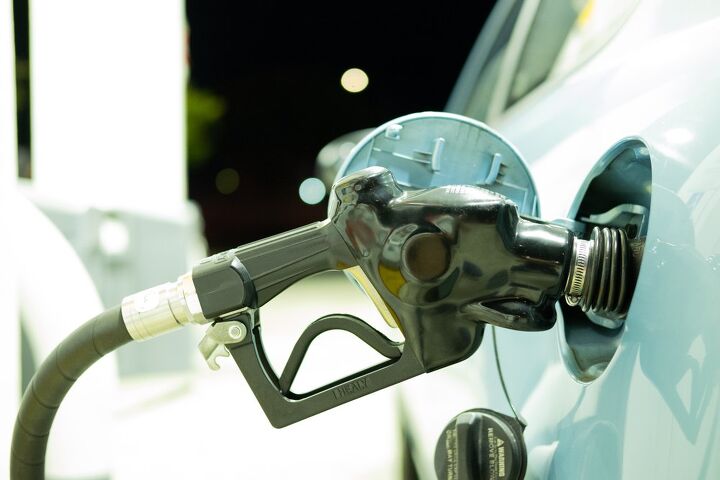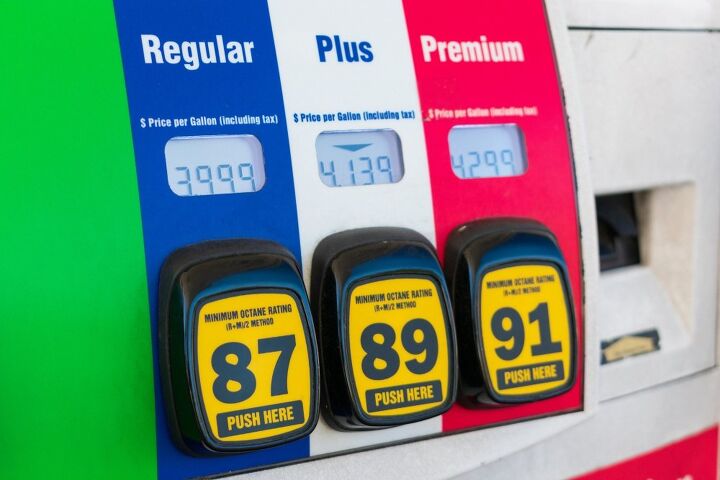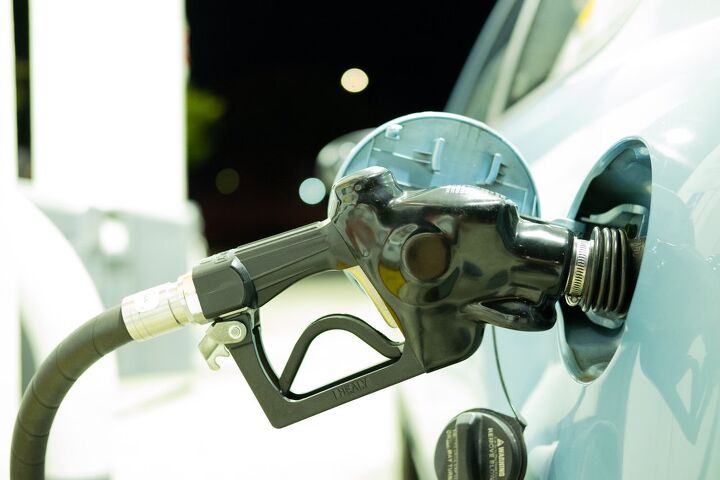#GasWar
Gas War: Justice Department Drops Antitrust Probe Against Automakers Siding With California
The United States Department of Justice has ended its investigation into Ford, Honda, Volkswagen, and BMW over a presumed antitrust violation stemming from a deal they made with California to adhere to regional emission rules. Their agreement technically circumvents the current administration’s plan to freeze national emissions and fuel economy standards — established while President Obama was still in office — at 2021 levels through 2026. Under the California deal, the automakers promised to comply with pollution and gas mileage requirements that are more stringent than the federal standards suggested in the rollback proposal.
But the probe also looked like retaliation from the Trump administration against automakers publicly siding with the state causing the most trouble in the gas war. Under the deal, the automakers promised to comply with pollution and economy requirements that are tougher than proposed federal standards. Despite the corporate promise being as empty as an Oscar speech, it was still an affront to the current administration’s efforts to tamp down lofty efficiency targets put in place just days before it came into power.
While the Justice Department hasn’t explicitly said why it closed the investigation, it’s presumed that it simply didn’t find anything that it felt violated antitrust laws. California Governor Gavin Newsom said on Friday that he wasn’t surprised by the decision, stating that the “trumped-up charges were always a sham, a blatant attempt by the Trump administration to prevent more automakers from joining California and agreeing to stronger emissions standards.”
A New Twist: California Bans Gov. Purchasing of Most Auto Brands
Just when you thought the gas war couldn’t get any wilder, California has announced it will ban the purchase of any vehicle manufactured by a company that doesn’t explicitly recognize the state’s ability to set its own emission regulations.
Starting in January, California plans to purchase any-and-all government fleet vehicles from only Ford, Honda, BMW, and Volkswagen Group — companies that backed a voluntary agreement to adhere to the state’s emission rules over the summer. The pact is now the subject of a federal antitrust probe.
Any automaker publicly supporting a single national standard (or having recently expressed support for the Trump administration’s fuel rollback proposal) will be deemed ineligible for fleet consideration. “Car makers that have chosen to be on the wrong side of history will be on the losing end of California’s buying power,” California Governor Gavin Newsom said in a statement.
Justice Department Subpoenas Automakers Over California Emissions Pact
The Justice Department has issued civil subpoenas to the four major automakers’ that voluntary agreed to adopt a Californian compromise on vehicle emission requirements. The antitrust investigation seeks to determine whether or not BMW, Ford, Honda, and Volkswagen were in violation of federal competition laws by agreeing with each other to adhere to stricter emissions standards penned by California.
With the Trump administration working for years to roll back emissions standards, California has been doing everything in its power to maintain its ability to self-regulate and gain support for higher emission standards. Under the agreement with the Golden State, the companies promised to meet annual emission improvement targets of 3.7 percent and defer to the state’s authority to set its own emissions standards.
Report: Trump Administration Seeks to Soften Fuel Economy Rollback
One of the issues underpinning the gas war has been an inability for either side to compromise. Initially, it was the current administration complaining about California wanting special treatment. But the coastal state was quick to return fire, claiming that the White House never offered a valid compromise.
Eventually California extended an olive branch by suggesting it would postpone existing fuel economy mandates by one year, while attempting to lock automakers in via written commitments. But federal regulators said a singular national standard was needed, suggesting California had overstepped its authority by trying to rope in manufacturers.
However, EPA Administrator Andrew Wheeler came back this fall with claims of a revised plan that could actually be more stringent than originally presumed. While still a rollback, the new draft was said to close several loopholes the industry could use to continue their polluting ways. “In some of the out years, we’re actually more restrictive on CO2 emissions than the Obama proposal was,” Wheeler said.
New reports now suggest the EPA’s words are more than just noise.
Battle Lines Are Being Drawn in America's Gas War
Ford Motor Co, Honda Motor Co, BMW Group and Volkswagen AG announced a voluntary deal with California in July — drawing a line in the sand for who they’ll be supporting in the fueling fracas taking place between the Golden State and White House. Meanwhile, the Trump administration’s rollback proposal — which intends on freezing automotive emission standards at 2020 levels through 2026 — saw no such support. But the cavalry seems to have finally arrived after sitting on the sidelines during the battle’s opening maneuvers.
General Motors, Fiat Chrysler Automobiles, Toyota, Mazda, Nissan, Kia, and Subaru all sided against California in a filing with a U.S. appeals court from Monday night. While they’re not setting any economy targets, they are collectively firm on the issue of the state’s ability to self regulate. A large portion of the industry wants a single national standard, not individual states setting their own benchmarks while they attempt to catch up with product.
California Governor Demands Investigation Into High Gas Prices
On Tuesday, California Governor Gavin Newsom responded to a new report claiming oil companies have been overcharging customers over social media.
“[California] drivers have paid an average of 30 cents more per gallon. There’s no identifiable evidence to justify that,” Newsom said. “I’m demanding an investigation. If oil companies are engaging in false advertising or price fixing — legal action should be taken.”
With California leading the charge against the federal government’s proposed fuel economy rollback, Newsom’s words are a bit of a faux pas. While we agree that companies should not be engaging in price fixing, California’s high fuel prices are largely its own doing. Newsom’s claims completely ignore this rather obvious fact — calling his ability to effectively negotiate the national fueling fracas into question.
EPA Chief Hints Vehicle Emission Rules Could Tighten Under Trump - With a Twist
It’s certainly taking this fuel economy rollback proposal we’ve heard so much about a long time to evolve into its final form. Unfortunately, Environmental Protection Agency Administrator Andrew Wheeler has indicated more changes could be needed before a final draft can be released. However, in a bit of a twist, he’s now claiming the proposal will actually be more rigorous than preexisting mandates. Kind of.
“In some of the out years, we’re actually more restrictive on CO2 emissions than the Obama proposal was,” Wheeler told a crowd at the Detroit Economic Club this week.
Gas War: EPA Says California Has Worst Air Quality in the U.S., Threatens to Cut Highway Funding
With California gearing up for a legal battle against federal regulators eager to revoke its fuel waiver, we knew it wouldn’t be long before another salvo was launched in the gas war. However, the latest skirmish is a bit personal. According to Automotive News, Environmental Protection Agency Administrator Andrew Wheeler issued a letter to to California Air Resource Board chief Mary Nichols on Tuesday that framed the Golden State as unfit to dictate U.S. environmental policy.
The letter claims California has “the worst air quality in the United States” and a backlog of implementation plans to address ambient pollution standards surpassing every other state in the union.
California is scheduled to receive over $4 billion in annual federal highway funding this October. Now, the EPA is claiming the state failed to enforce the U.S. Clean Air Act. As a result, the Trump administration is threatening to withdraw those funds if the region doesn’t take immediately action on 130 different state implementation plans.
Gas War: California Sues Over State-based Emission Standards
On Friday, California and 23 other states filed a lawsuit against the Trump Administration over efforts to reverse state-driven emissions standards. Earlier this week, the president confirmed speculation that the federal government would be taking steps to revoke California’s fuel waiver — making the suit about as predictable as the setting sun.
We’ve told the story countless times. The Golden State wants to maintain stringent emission laws for automobiles, the Trump administration wants a fuel rollback, and automakers want a universal national standard. After months of nonproductive talks and all sides attempting to make their case to the public, it looks at though the Supreme Court will have the final say.
Gas War: Trump Confirms U.S. Will Revoke California Fuel Waiver
While a considerable portion of Donald Trump’s Twitter announcements aren’t worth paying much attention to, he does occasionally slip some actual information in there. This week, the nugget was the confirmation that his administration intends to revoke California’s federal waiver on emissions — stripping the state of its ability to self-regulate and readying America for the gas war’s main event.
The Environmental Protection Agency was already known to be making preparations to do exactly this, but the president’s Wednesday posting made things crystal clear. “The Trump Administration is revoking California’s Federal Waiver on emissions in order to produce far less expensive cars for the consumer, while at the same time making the cars substantially SAFER,” he wrote.
Gas War: White House Preparing to Strip California of Regulatory Privileges, Report Claims
It’s not as if we anticipated any other outcome, but the White House is moving forward with a plan to revoke California’s authority to set its own vehicle emission standards. According to Reuters, President Donald Trump met with senior officials in Washington on Thursday to discuss the administration’s proposal to roll back Obama-era standards through 2025 and potentially revoke California’s waiver under the Clean Air Act to set state requirements for vehicles.
Anonymous sources claimed Environmental Protection Agency Administrator Andrew Wheeler, Transportation Secretary Elaine Chao, National Economic Council director Larry Kudlow, Deputy Attorney General Jeffrey Rosen and acting Office and Management and Budget director Russell Vought were in attendance.
Gas War: EPA Head Suggests Fuel Rollback May Have Some Wiggle Room
Environmental Protection Agency Administrator Andrew Wheeler weighed in on the gas war this week, issuing some firm language on the matter during a visit to Chattanooga, Tennessee. His words were softer upon returning to Washington, where he reminded everyone that the EPA has made no formal decisions on the matter and suggested there could still be room for compromise.
Unfortunately, locating that happy middle ground has been a bit of a problem. Despite the fuel economy rollback’s status as a proposal, hard lines have been drawn in the sand between the Trump administration and California’s regulatory bodies. The Golden State’s compromise was to delay the Obama-era targets by one year. California also recruited municipalities, U.S. states, and automotive manufacturers to pledge their support of the plan, resulting in a handful of carmakers finding themselves on the business end of an antitrust probe.
Meanwhile, the Trump administration’s compromise has been nonexistent. Wheeler’s words suggest that might be because everyone is still making up their minds… but not before he gently razzed the West Coast for being shortsighted an singleminded.
Gas War: Antitrust Probe Opened Into Automakers Endorsing California Emissions Pact
The Justice Department has opened an antitrust probe into four automakers that formed a pact with California to compromise on tailpipe emissions, effectively circumventing federal regulators, last July.
Over the summer, Ford Motor Co., Honda Motor Co., BMW AG and Volkswagen Group announced a joint agreement with the California Air Resources Board to adhere to fueling standards slightly lower than Obama-era rules but still significantly higher than the Trump administration’s proposal from 2018. The Justice Department is seeking to determine whether or not that qualifies as a violation of federal competition laws.
Gas War Update, Choose a Side Edition
According to recent reports, there’s trouble with the White House’s fuel economy rollback. The Trump administration is said to have been meeting with automakers, asking them to stand behind its proposal to freeze economy standards at about 37 mpg until 2026. The New York Times indicates it was an act of desperation, spurred by claims that Mercedes-Benz was on the cusp of supporting the California compromise. Based on existing standards, which would raise the average fuel economy of new cars and trucks to 54.5 miles per gallon by 2025, the deal would delay its targets by one year.
Honda, Ford, Volkswagen, and BMW previously agreed to support California’s proposal in July. However, the deal is non-binding if the White House decides to push through a rollback, and most of the rhetoric being used by the industry seems more focused on a joint standard.
“A 50-state solution has always been our preferred path forward and we understand that any deal involves compromise,” read the automakers’ joint statement.”These terms will provide our companies much-needed regulatory certainty by allowing us to meet both federal and state requirements with a single national fleet, avoiding a patchwork of regulations while continuing to ensure meaningful greenhouse gas emissions reductions.”
Gas War: Efficiency Rollback Would Raise Fuel Costs, Study Claims
The fuel economy rollback posited by the Trump administration remains a hotly debated issue within the automotive community. Unfortunately, it has become mired in political nonsense, making decrypting the real-world impact of embracing or shunning it rather difficult. Consumer Reports recently took a stab at making sense of the matter, coming out in favor of balking at the notion of a rollback on the grounds that it would ultimately raise fueling costs.
Last year, the administration proposed capping fuel economy and emission standards at 2020 levels, instead of allowing them to rise annually as under existing regulations. The opposition, fronted by California, is vying to maintain the existing standards — with the possible compromise of delaying them by one year.























Recent Comments